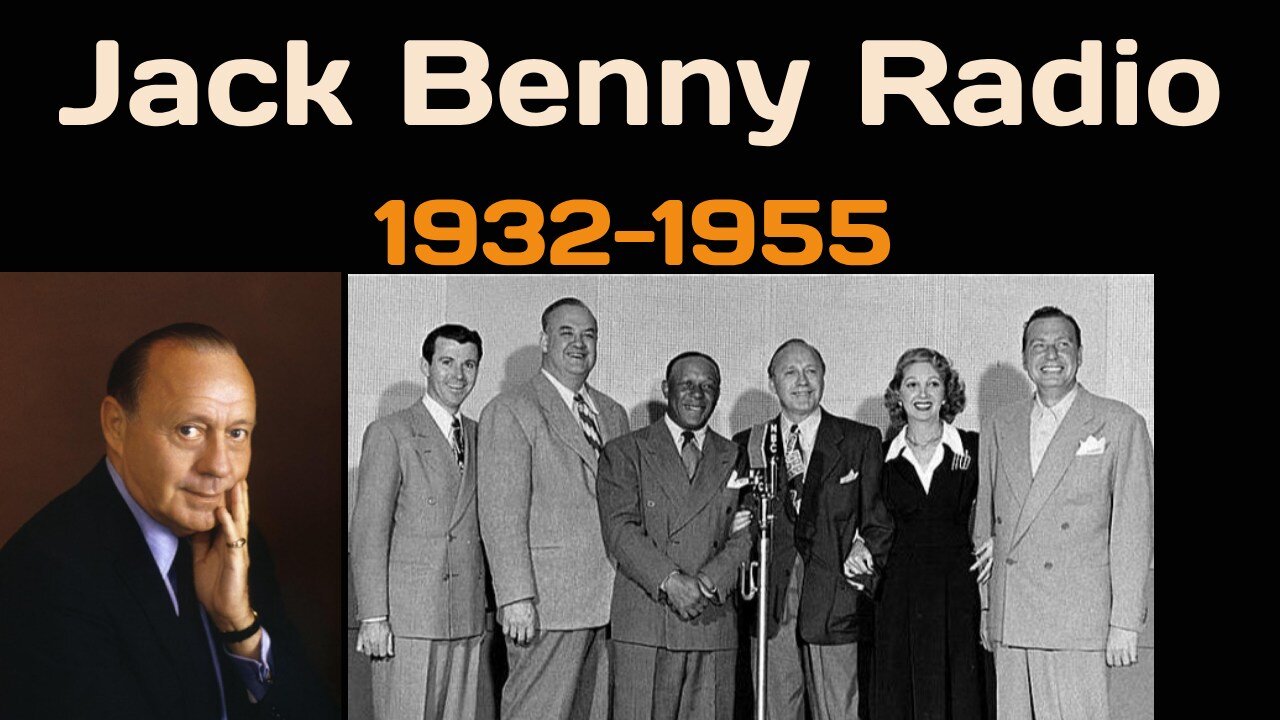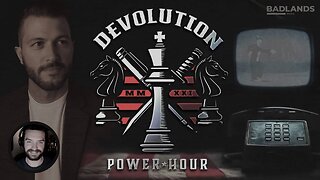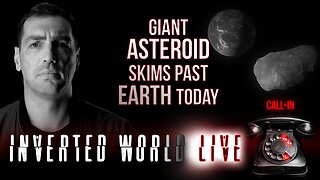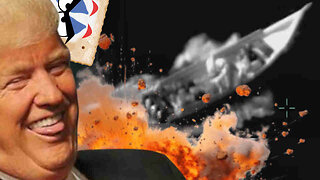Premium Only Content

Jack Benny - 38/10/16 Last Broadcast From the Old NBC Studio
The Jack Benny Program aired from May 2, 1932, until June 22, 1958. The show was identified by different names based on the sponsor at the time. The Canada Dry Program was on the air from May 2, 1932, until October 26, 1932. It starred Jack Benny. The announcer was George Hicks with George Olsen and his wife Ethel Shutta providing music and vocals, and Jack's wife, Sadye Marks, as Mary Livingstone. The show moved over to CBS on October 30, 1932, to January 26, 1933. On CBS the music was provided by Ted Weems and his orchestra.
The next sponsor was General Motors, and the program was called The Chevrolet Program. It aired on NBC from March 17, 1933, until April 1, 1934. The cast included Jack and Mary with singers James Melton in 1933 and Frank Parker from 1933 to 1934. The announcers were Howard Claney in 1933 and Alois Havrilla from 1933 to 1934. Music was supplied by Frank Black.
The program became The General Tire Show from April 6 to September 28, 1934. Joining Jack and Mary was Frank Parker, and Jack's long-time announcer Don Wilson was added. Music was performed by Don Bestor on the east coast and Jimmy Grier on the west coast.
The Jello Program was on the air from October 14, 1934, to May 31, 1942. The show started on the Blue Network until October 4, 1936, then moved to the Red Network thereafter. The cast included Jack and Mary with Don Wilson. Music was provided by Johnny Green in 1934 and 35 and then Phil Harris started in 1936. The program singers were first Michael Bartlett, then Kenny Baker from November 3, 1935, and finally Dennis Day joined the show on October 8, 1939. Eddie Anderson became a regular on June 20, 1937. The show was produced in Hollywood permanently starting in April of 1935.
Post became the next sponsor, and the show was called The Grape Nuts and Grape Nuts Flakes Program. It aired on NBC and ran from October 4, 1942, until June 2, 1944. It starred the regular cast of Jack, Mary, Eddie, Dennis, Phil and Don.
Next came The Lucky Strike Program which aired on NBC from October 1, 1944, to December 26, 1948. The only change to the cast was Larry Stevens who flew in while Dennis Day was in the service.
Then on January 2, 1949, the program moved to CBS, and it ran there until May 22, 1955. Bob Crosby replaced Phil Harris on September 14, 1952.
The Best of Benny, which were repeat broadcasts, aired on CBS from October 28, 1956, to June 22, 1958.
Jack's first appearance on the radio occurred while he was interviewed by Ed Sullivan. His first words over the microphone were "This is Jack Benny talking. There will be a slight pause while you say 'Who cares?'" This interview led to the first radio contract with Canada Dry. This first program was mainly musical with George Olsen performing seven musical numbers and Jack was the master of ceremonies.
According to John Dunning, The Jack Benny Program evolved over time from its vaudeville roots to become the quintessential American radio comedy show. It was a jigsaw puzzle where pieces were added over the years. For four decades Jack played the part of a vain, miserly, argumentative skinflint. Others tried this approach but were unable to sustain it.
Jack worked with Harry Conn to develop his character as well as the character of Mary Livingstone, which he had played by his wife. Mary Livingstone was a very sarcastic but well-meaning friend to Jack. Sometimes she was presented as a date, sometimes as a love interest, but often she was just there. Her role changed from plot to plot, and she never really was a steady girlfriend to Jack.
In 1933 Jack began arguing with his cast, adding another characteristic which led to less musical numbers and more comedy. In April of 1934 Don Wilson was added to the program and Don was Jack's announcer all the way up to the end of the TV show in 1965. He was a target of Jack's jokes, mostly about his weight even though he was never really overweight. The next piece added was when Phil Harris joined the show in 1936. Phil's character was a skirt chasing, arrogant, hip-talking band leader who constantly put Jack down. He is remembered for referring to Jack as Jackson.
Then came Eddie Anderson who started playing the part of a train porter and then joined the cast as a regular as Rochester in June of 1937, as Benny's personal valet. Early in the show's run he often talked about gambling or going out with women, but later he just generally complained about his lack of salary.
The last piece of the puzzle was supplied by the arrival of Owen Patrick Eugene McNulty. McNulty is better known as Dennis Day. Dennis was always in his early twenties no matter how old he was. His character was sweet but not very bright. One of the few memorable aspects of the program was the fifteen-year feud with fellow radio actor Fred Allen. In one occasion when ratings were falling "The I Can't Stand Jack Benny Because -" contest was run, which boosted ratings right back up.
-
 2:21:10
2:21:10
Badlands Media
8 hours agoDevolution Power Hour Ep. 386: Epstein Disclosures, Clinton Foundation, and Trump’s Wartime Authority
169K16 -
 2:07:22
2:07:22
Inverted World Live
9 hours agoGiant Asteroid Skims Past Earth Today | Ep. 102
43.2K4 -
 3:11:00
3:11:00
TimcastIRL
6 hours agoTrump Kills 11 Narco Terrorists, Democrats Warn War With Venezuela Coming | Timcast IRL
171K165 -
 13:07
13:07
Robbi On The Record
3 days ago $5.95 earnedSweet Poison: The Big Fat Lie That’s Killing America
48.3K25 -

Drew Hernandez
11 hours agoEPSTEIN VICTIMS SPEAK OUT & TRUMP DOUBLES DOWN
40.2K32 -
 1:36:41
1:36:41
FreshandFit
7 hours agoWe Are QUITTING YouTube...
57.9K45 -
 2:34:22
2:34:22
TheSaltyCracker
7 hours agoDrug Smugglers Blown Up 9-03-25
101K198 -
 3:12:59
3:12:59
VapinGamers
6 hours ago $1.52 earnedGrim Trials - Game Review/Playthru - Rougelight Dungeon Crawler - !rumbot !music
31K -
 2:47:55
2:47:55
Mally_Mouse
13 hours ago🎮 Let's Play!! -- Jak 2 pt. 16
59.1K2 -
 52:23
52:23
MattMorseTV
8 hours ago $18.60 earned🔴The Cartels are SCREWED.🔴
120K135